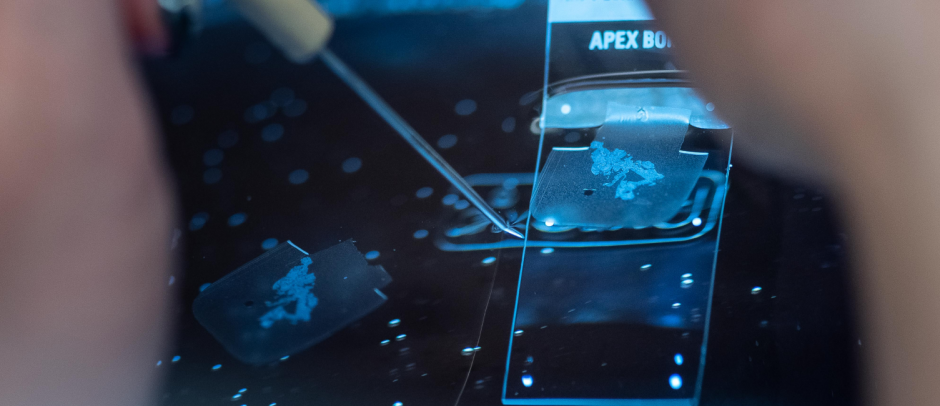Stopping an invisible killer
in its tracks
Scientists at UBC are determined to reduce ovarian cancer deaths and suffering by 50 per cent over the next decade.

Ovarian cancer is a confounding disease. In the beginning stages it is readily treatable, but there are no effective early screening tests for the disease. It often progresses without telltale symptoms. Most patients — about four in five — are diagnosed only after the cancer has reached an advanced stage.
“For too many women, diagnosis and treatment happen too late,” says Dr. David Huntsman, a UBC professor of pathology and Canada Research Chair in Molecular and Genomic Pathology. “With better tools and we can prevent a great deal of suffering and loss.”
Dr. Huntsman’s discovery — that ovarian cancer is not one cancer but a number of different cancers, each potentially requiring different tests and different treatments — has opened up new possibilities for screening, prevention, and treatment.
Using next-generation transcriptome and exome DNA sequencing technology, Dr. Huntsman and his team identified predictive and prognostic tissue-based biomarkers for a number of these ovarian cancer sub-types, as well as a wide variety of other tumours. His research has informed the development of population-level interventions such as accessible, province-wide genetic screening for ovarian cancer biomarkers.

But Dr. Huntsman emphasizes that his work belongs firmly within the much larger collaborative effort that he and his UBC colleagues are helping to foster. The complexity of ovarian cancers demands a robust translational effort that is always focused on the patient and would-be patient. Their goal is to reduce gynecologic cancer incidence, suffering and death by 50 per cent over the next 12 years.
The launch of UBC’s Molecular and Advanced Pathology Core (MAPcore) Laboratory promises to boost this collaboration. MAPcore is a world-class imaging facility that connects researchers studying any disease with leading pathologists, accelerating the validation and translation of research discoveries into new treatments and screening/prevention.
“We need to bring every possible type of expertise and the most progressive technologies available to bear on the problem of ovarian cancers, from proteomics to MAPcore imaging to the lived experience of survivors,” he says.
“I’m optimistic we can do it.”


